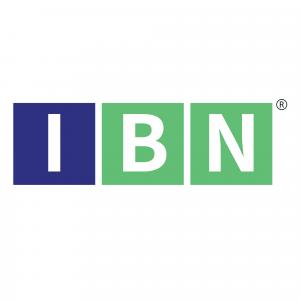Streamlining Financial Operations in Travel
Travel companies in the United States are increasingly turning to specialized bookkeeping services to enhance their financial management. These services assist businesses in monitoring deposits, managing commissions, and making financial reporting a seamless process. By partnering with expert providers, travel companies improve their operational efficiency and gain better control over their expenses.
The Role of Outsourced Bookkeeping Services
The implementation of outsourced bookkeeping services is carving a new landscape in the travel industry. These services offer comprehensive solutions that allow travel companies to focus on what they do best—providing unique experiences for travelers. By handing over the complexities of financial tracking and reporting to specialized providers, businesses can improve accuracy and reduce overhead costs. This shift not only enhances financial management but also fosters a more strategic approach towards budgeting and forecasting.
Enhancing Accountability Through Technology
With technology advancing at a rapid pace, travel companies now have access to sophisticated tools that automate bookkeeping tasks. These tools provide real-time visibility into financial performance, allowing companies to make informed decisions promptly. Enhanced data tracking capabilities enable businesses to identify areas for cost savings and optimize their overall spending.
Benefits of Utilizing Bookkeeping Services
- Improved Financial Clarity: Enhanced oversight of financial transactions leads to more informed decision-making.
- Cost Efficiency: By outsourcing services, companies can save on the expenses associated with in-house accounting.
- Time Savings: Freeing up management teams to focus on core business operations improves overall productivity.
A Historical Perspective on Bookkeeping in Travel
The evolution of bookkeeping services within the travel industry highlights the sector’s adaptability to technological advancements. Initially, travel bookkeeping was largely manual, involving extensive paperwork and time-consuming processes. Over the years, as the travel industry expanded, so did the need for more efficient financial management solutions.
The introduction of digital tools has transformed bookkeeping tasks, transitioning from traditional ledger books to automated systems. This shift paved the way for specialized outsourcing firms to flourish, offering services that cater specifically to travel businesses. Such historical context underscores the importance of adapting to changes, particularly in an era where data-driven decisions are paramount for maintaining competitiveness.
Future Insights for Expense Management in Tourism
Looking ahead, the role of effective expense management will only become more critical as the travel industry continues to evolve post-pandemic. An increased emphasis on sustainability and experience personalization is pushing travel companies to identify various cost-cutting measures while simultaneously enhancing service engagement. The combination of advanced software solutions and expert bookkeeping services will likely shape the future landscape of expense management in travel, setting a new standard for financial operations.
Key Factors Influencing the Future
- Sustainable Practices: Incorporating eco-friendly policies may prompt travel companies to seek innovative solutions to manage costs effectively.
- Emerging Technologies: As artificial intelligence and machine learning continue to advance, their application in bookkeeping could redefine how data is analyzed and processed in the travel industry.
- Customer Demands: With travelers increasingly seeking personalized experiences, the ability to manage budgets meticulously will be essential for tailored offerings and services.
As trends in expense management continue to evolve, the significance of integrated solutions becomes apparent. The need for real-time data, combined with expert insights, provides travel companies with the necessary tools to thrive amidst the challenges that lie ahead. The collaboration between technology and professional services can foster an environment where businesses stay agile, enabling them to adapt and flourish during fluctuating market conditions.
Exploring the nexus between travel expense management and outsourcing firms highlights an ongoing evolution that enhances operational capacity. Businesses committed to leveraging these solutions can expect not only improved expense control but also a more substantial impact on their overall service offerings.
For those who frequently venture into maritime tourism or regions where sailing is a popular activity, having robust financial management is of paramount importance. Efficiently managing expenses can ensure that local attractions, from marinas to sailing experiences, can offer competitive pricing while maintaining quality services. Organizations that optimize their financial systems are likely to see improved customer satisfaction alongside enhanced business viability.
In conclusion, the exploration of innovative bookkeeping solutions serves as a reminder that effective financial management is the bedrock of any successful travel business. With ongoing developments in the field, staying informed and agile enables companies to navigate the choppy waters of the tourism industry with confidence. ゲットボート・ドットコム is always keeping an eye on the latest tourism news, reflecting the evolving landscape of the travel sector. Keeping a finger on the pulse of industry advancements allows businesses to adapt, ensuring their offerings align with the desires of modern travelers.

 Cutting-Edge Expense Management in Travel Companies">
Cutting-Edge Expense Management in Travel Companies">
